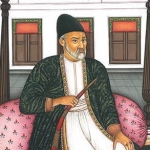I have arrived here after taking many steps
Over the kitchen floors of friends and through their lives.
The dun-colored hills have been good to me
And the gold rivers.
I have loved chrysantheumums, and children:
I have been grandmother to some.
In one pocket I have hidden chocolates from you
And knives.
Speaking my real thoughts to no one
In bars and at lecterns I have told the truth
Fairly often, but hardly ever to myself.
I have not cried out against the crimes of my country
But I have protected myself, I have watched from a safe corner
The rape of mountains, the eagle’s reckless plunge.
Ever since high school I have waved goodbye to history:
I have assisted you to grow
In all ways that were convenient to me.
What is a block vote against steam shovels?
My current events teacher was a fine man
But his moral precepts were a put-up job and I followed them.
Well-dressed, in my new Adidas
At every gathering I investigated my psyche with friends
And they investigated theirs with me.
But whenever Trouble came in the front door I ran out the back
And fell into the pit of my bones.
Escaped from those burning buildings, the past,
What balance can any of us hope for?
I was comparing lipsticks
The day Nagasaki vanished.
The day Solzhenitsyn disappeared into the Gulag
I was attending a cocktail party.
Perhaps there are only ashes in my handbag.
A man at the corner of Broadway and Forty-Second Street
Tried to sweep me into a trash barrel and I almost agreed.
Already the dried blood was sifting along my wrists.
Already my own hands
Were tightening around my throat
But sorrow saved me, Sorrow gave me an image
Of bombs like human tears watering the world’s gardens.
How could I not answer?
Since then I have been planting words
In every windowbox, poking them to grow up.
What’s god, That he should be mindful of me?
sometimes I feel like wood
Waiting for someone to peel me.
Indeed I have been lukewarm
At heart, which is all that matters.
Of tiny bread-colored atoms,
Equal fragments equally dispersed
That love each other and are never hungry.
What have I ever ignited
That warmed anyone?
I have not followed the rivers.
Dangerous as a pine needle
Packed in among others, in the dense multitudes
And dry timbers of the West
I am afraid of greed,
The rich taste of it, the anger
Hidden in my pockets.
Columns of smoke on the horizon,
Pillars of green fire.
But I have arrived here somehow,
Neither have I stopped talking.
Numberless are the kitchens I have sat in,
Chewing my fingers, trying to say something,
Anything, so that the daughters of men should see
As many sides of themselves as possible.
Word after word my footprints
Have stumbled across deserts.
How should I escape them?
They keep following after me.
A little wind stirs itself,
Whisks across my eyelids,
And I know what it is before I say it:
What if the world really articulates itself
In the socket of a human knee?
God save me
From the swamps of hubris but it may be, it may be.
Before the idea, the impulse.
I feel it moving in me, it is there
Arthritic but still powerful, a seizure
Delicate as grasshoppers, a light
Gathering in the skull.
Between thumb and forefinger
And the ballbearing joints of the tongue
In soft, glottal convulsions
Out of no alien skies
But out of the mind’s muscle
The hieroglyph figures rise.
The little histories of words
Cannot be eaten.
I know it, you know it
And the children...
But the images we make are our own.
In the cool caves of the intellect
The twisted roots of them lead us
Backwards and then forwards.
If only we could understand
What’s in our pockets is for everyone!
I have a dictionary in one hand, a mirror.
Strangers look at themselves in it,
Tracing the expressions they use
From one family to the next
They comfort themselves, murmuring
The tongues we speak are a blizzard
Of words like warm wool flying:
In the shy conjugal rites
Of verb, consonant, vowel,
In the dark mucosal flesh lining
The prismed underside of the skin
Each one is a spark sheared
From the veined fleece of the spirit
Of the looking-glass body we live in.
It is the one I have been cherishing,
The one all of us speak from,
For the world as we know it moves
Necessarily by steps.
Breath, pulse beat, ten digital stops.
At the foot of the mountains I look up. Does God
Lift up His hand to cover them?
Blinded by tears like rain
My bones turn granite, the spine of the hills congeals them.
Where is the eye of the storm,
Or where is the center of my seeing?
The wind of my breath is a hurricane:
I am locked inside myself.
Painfully, up the bald stepladder I climb,
But sometimes the light in my head goes on
More like the sun than a match.
Just as they said in Arabia
There’s a huge pantalooned angel swelling
Inside the body’s glass jar.
The white-haired thread of steam
From the teakettle on the range whistles
And sharpens itself into a voice
Bodiless as history, invisible
But still whispering in ears
That keep trying to hear it.
It is as if midgets were bellowing their names
Down sets of cardboard cylinders.
But we have not disappeared
Yet.
My friends, we have said many things to each other
In new combinations, seed upon seed exploding
And blossoming in kitchen gardens.
I confess I am ashamed of myself:
I have not tried hard enough to understand
Or listen to you speak.
But the Word is mindful of itself
And always has been.
Littering every street
In the sly eyes of tin cans,
Drops of water in the gutter
The world looks back at us
From every known language:
Yoruba, Hebrew, Chinese,
Arrogant english, the subject
Subjecting all to its desires,
Even the softer tongues, romantic
Self-reflexive, done to
As we would be done by,
Whatever life we cultivate
Out of the animal moans of childhood
It is all wheat fields, all grass
Growing and being grown.
With poisoned bread in my pockets, or gumdrops,
Or armies like Myrmidons rising
What I say is true
For a time only, thank God,
If I have only arrived anywhere it is to look
Carefully, at all I thought I knew.
In living rivers of speech
The reflections I make are my own
And yet not:
Though the old growth rings are hidden from us
And the echoing tomorrows of the acorn,
The warm currents of the senses
Are a two-way street, my friends:
The palms of our hands are crisscrossed
With as many intersections as a leaf.


















Comment form: